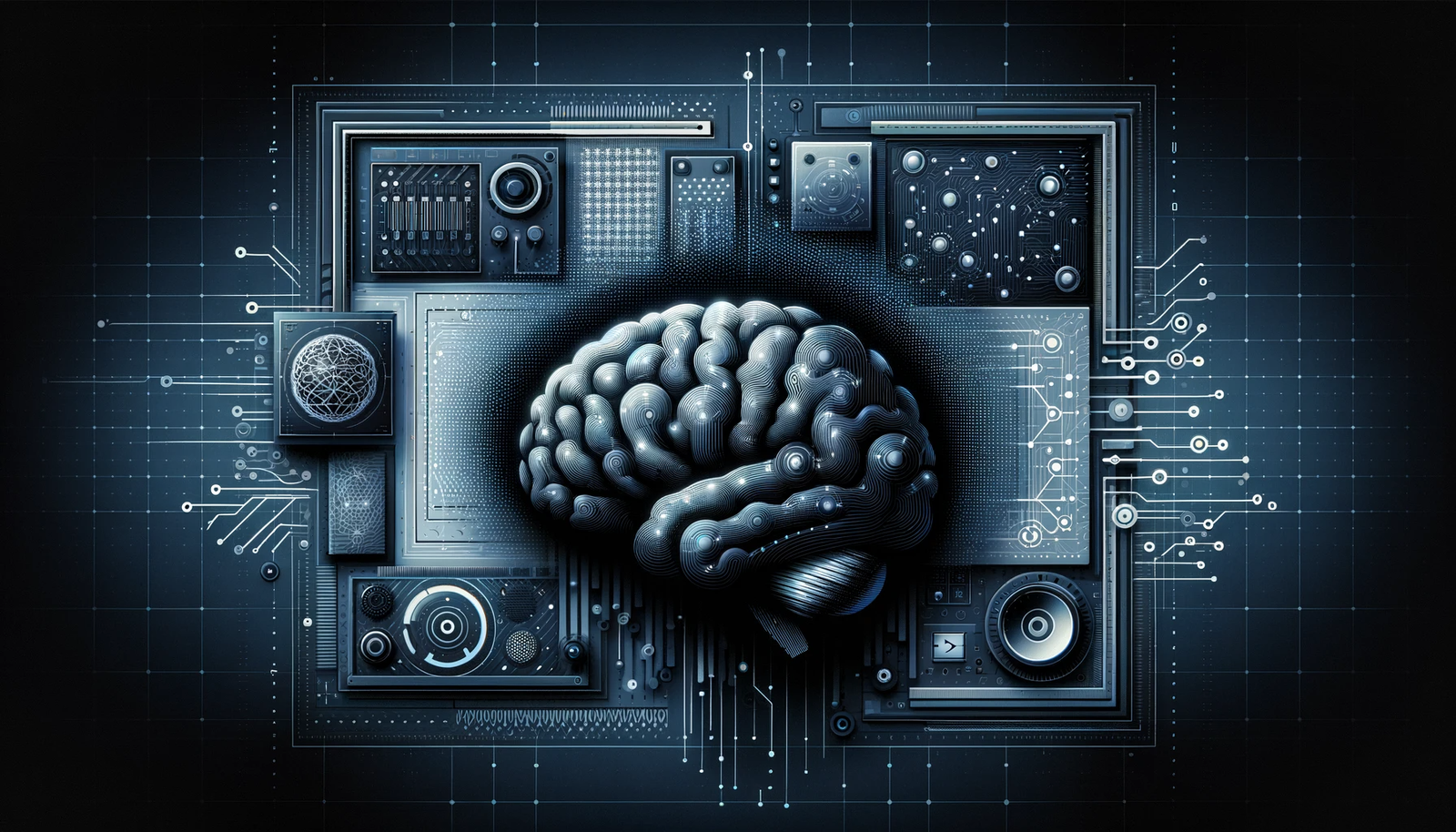Artificial Intelligence (AI) is a game-changer in today’s fast-paced marketing world, transforming how we create personalized marketing strategies. This shift isn’t just about technology; it’s about making real, meaningful connections with consumers. AI brings the ability to analyze data, make decisions, and solve problems in ways that mimic human intelligence but with unparalleled efficiency. From algorithms and machine learning to data analytics and natural language processing, AI is breaking new ground, allowing marketers to deliver content and experiences that truly resonate with their audience.
As we dive into the heart of how AI is reshaping personalized marketing, we’ll look at its role in making marketing campaigns more efficient and impactful, offering a glimpse into the future where marketing meets personalization at an unprecedented scale. Through exploring the latest advancements, ethical considerations, and the challenges ahead, this article aims to shed light on the significant impact of AI on the marketing landscape, inviting readers to reflect on the evolving relationship between technology, businesses, and consumers in this digital age.
Definition of Artificial Intelligence (AI) in Marketing:
Artificial Intelligence (AI) in marketing refers to integrating intelligent technology systems capable of performing tasks that typically require human intelligence. These tasks include learning from data, decision-making, and problem-solving to optimize marketing efforts. In this context, AI enhances customer experiences, improves targeting and personalization, and drives more efficient marketing campaigns. By leveraging algorithms, machine learning, and data analytics, AI transforms vast amounts of data into actionable insights, enabling marketers to deliver more relevant and engaging content to their audiences.
Overview of the Evolution of Marketing Strategies:
Technological advancements and changing consumer behaviors have profoundly influenced the evolution of marketing strategies. From the traditional era of print and broadcast media, marketing has transitioned through various phases:
- The Emergence of Digital Marketing: The advent of the internet brought about digital marketing, which allowed for more targeted and interactive communication.
- The Rise of Social Media and Mobile Marketing: The widespread use of smartphones and social media platforms further shifted the marketing landscape, emphasizing personalized and real-time engagement.
- The Era of Data-Driven Marketing: The availability of large data sets and advanced analytics tools has led to data-driven marketing strategies focusing on consumer insights and behavior patterns.
- The Integration of AI in Marketing: Today, AI is at the forefront, offering unprecedented capabilities in personalization, automation, and predictive analysis.
Thesis Statement: Exploring how AI is revolutionizing personalized marketing strategies:
This paper aims to explore the transformative role of AI in the realm of personalized marketing strategies. We will explore how AI enhances marketing campaigns’ efficiency and effectiveness and reshapes how brands interact with consumers. By leveraging AI, marketers can now offer highly personalized experiences, predict consumer needs, and foster deeper customer engagement, thereby setting a new benchmark in the marketing domain. The exploration will encompass the latest AI technologies, ethical considerations, challenges, and future trends, providing a comprehensive understanding of AI’s impact on personalized marketing.
The Current Landscape of AI in Marketing
AI Technologies Used in Marketing Today:
Machine Learning and Predictive Analytics:
Machine learning, a subset of AI, involves algorithms that enable computers to learn from and make predictions or decisions based on data. This technology is used in marketing for predictive analytics—understanding consumer behavior, predicting future trends, and making data-driven decisions. This includes personalizing content, dynamic pricing strategies, and customer segmentation.
Natural Language Processing (NLP):
NLP is a branch of AI that helps computers understand, interpret, and helpfully respond to human language. In marketing, NLP is utilized for sentiment analysis to gauge consumer opinions and emotions, automate customer service interactions, and enhance user experience on websites and apps through voice or text-based interfaces.
Chatbots and Virtual Assistants:
These AI-powered tools are designed to simulate human-like interactions, enabling 24/7 customer service and support. In marketing, chatbots and virtual assistants automate responses to customer inquiries, guide customers through the purchasing process, provide personalized recommendations, and enhance overall customer engagement.
B. Case Studies: Successful AI-Driven Marketing Campaigns:
This section will detail specific examples of brands that have effectively implemented AI in their marketing strategies. Each case study would highlight the AI technology used, the technique employed, the execution of the campaign, and the outcomes in terms of customer engagement, sales, and brand perception.
C. Impact of AI on Consumer Behavior and Expectations:
AI has significantly altered consumer behavior and expectations. This part of the paper will explore how the convenience, personalization, and immediacy offered by AI-driven marketing techniques have raised consumer expectations. It will also discuss how AI has led to more informed and empowered consumers who demand tailored experiences and instant, seamless interactions with brands. The section will also touch on the implications of these heightened expectations for marketers and how they adapt their strategies in response.
Personalization in Marketing: A Deep Dive
The Concept of Personalization in Marketing:
Personalization in marketing refers to tailoring marketing messages and offerings to individual consumers based on their preferences, behaviors, and previous interactions. This approach seeks to create a more engaging and relevant experience for the consumer to boost customer loyalty, satisfaction, and conversion rates. Personalization goes beyond just addressing the customer by name; it involves understanding their needs and preferences to offer them a unique and tailored experience.
Role of Data in Personalized Marketing:
The effectiveness of personalized marketing heavily relies on data. This section will explore how data about consumer behavior, demographics, purchase history, and online activities are collected, analyzed, and used to create detailed customer profiles. It will delve into the various data sources, such as social media interactions, website analytics, and CRM systems, and how this data is synthesized to form a comprehensive understanding of individual customer preferences and habits.
AI-Driven Personalization Techniques:
Customized Content Creation:
This technique uses AI to generate or curate content that resonates with consumers. AI analyzes data points to understand what type of content a specific customer will likely engage with, then automatically creates or recommends content based on these insights. This could include personalized emails, social media posts, or blog articles.
Personalized Product Recommendations:
AI algorithms can predict what products a customer might be interested in based on their past behavior, search history, and purchase patterns. This section will discuss how e-commerce platforms and online retailers use these algorithms to show customers products they are more likely to buy, thereby increasing the chances of a purchase.
Targeted Advertising:
AI optimizes advertising campaigns by targeting users most likely interested in a product or service. This involves analyzing large datasets to identify patterns and characteristics of a target audience and then serving them with tailored ads. This section will explore how AI-driven targeted advertising works and its advantages over traditional advertising methods.
Ethical and Privacy Considerations
Data Privacy and Security Challenges:
The extensive use of consumer data in AI-driven personalized marketing raises significant privacy and security concerns. This section will delve into the challenges of safeguarding consumer data in an era of data breaches and unauthorized data usage. It will discuss the risks associated with collecting, storing, and analyzing large amounts of personal data and the potential for misuse. Implementing robust security measures to protect consumer data from cyber threats and breaches will also be highlighted.
Ethical Use of AI in Personalized Marketing:
The ethical implications of using AI in personalized marketing are complex and multifaceted. This part will explore issues such as the potential for AI to perpetuate biases, invade privacy, and manipulate consumer behavior. It will discuss the responsibility of marketers to use AI ethically, ensuring that it enhances consumer experiences without infringing on their rights or autonomy. The balance between effective marketing and ethical considerations, such as respecting consumer consent and transparency in data usage, will be examined.
Regulations and Compliance (e.g., GDPR, CCPA):
This section will provide an overview of the regulatory landscape governing the use of AI and data in marketing. It will focus on significant legislation, such as the General Data Protection Regulation (GDPR) in the European Union and the California Consumer Privacy Act (CCPA) in the United States. The implications of these regulations for personalized marketing strategies will be discussed, including the need for compliance in data collection, consent, data subject rights, and cross-border data transfers. The section will also touch on non-compliance penalties and the importance of staying abreast of evolving regulations in different jurisdictions.
Future Trends and Innovations
This section will explore the cutting-edge AI technologies poised to transform the marketing landscape further. Topics may include advancements in deep learning, which can process and analyze more complex data sets for more nuanced personalization; the evolution of AI algorithms for more accurate predictive modeling; and the development of sophisticated NLP techniques for more advanced chatbots and voice assistants. The potential of quantum computing to process data at unprecedented speeds and its implications for real-time, hyper-personalized marketing strategies could also be discussed.
Emerging AI Technologies in Marketing:
Emerging AI technologies are transforming the marketing landscape, introducing innovative tools that enhance personalization, automate processes, and predict consumer behavior with unprecedented accuracy. From AI-driven chatbots improving customer service to machine learning algorithms optimizing ad placements and content creation, these advancements enable marketers to craft highly targeted campaigns. Additionally, AI-powered analytics provide deep insights into customer preferences and trends, facilitating data-driven strategies that significantly boost engagement and ROI. As these technologies evolve, their integration into marketing practices sets new standards for efficiency and effectiveness in reaching and understanding audiences.
Predictions for the Future of Personalized Marketing:
This part will offer insights into where personalized marketing is headed, drawing on current trends and expert opinions. Predictions include the increasing precision and micro-targeting in marketing campaigns, the shift towards more immersive and interactive marketing experiences, and the growing importance of real-time personalization. The potential for AI to create entirely new marketing paradigms, such as predictive personalization, where AI anticipates consumer needs even before they arise, could also be explored.
Integration of AI with Other Emerging Technologies (e.g., IoT, AR/VR):
The convergence of AI with other emerging technologies like the Internet of Things (IoT), Augmented Reality (AR), and Virtual Reality (VR) holds immense potential for personalized marketing. This section will discuss how IoT devices can provide real-time data for more dynamic and context-aware marketing and how AR and VR can create immersive and customized brand experiences. The potential for these integrations to create more engaging, memorable, and personalized customer journeys will be highlighted, along with examples of early adopters and innovators in this space.
Challenges and Limitations
Technical Challenges in Implementing AI:
Implementing AI in marketing has its challenges. This section will delve into the various challenges, such as the need for significant computational resources, the complexities of integrating AI with existing marketing systems, and the expertise required to effectively manage and interpret AI outputs. The challenges of data quality and the need for large, diverse datasets for practical AI training will also be discussed, along with the issues of scalability and maintaining the AI systems over time.
Limitations in AI’s Understanding of Human Emotions and Nuances:
Despite its advanced capabilities, AI still struggles to grasp the subtleties of human emotions and cultural nuances fully. This part will explore AI’s limitations in interpreting and responding to consumers’ complex and often nuanced emotional responses. It will discuss the challenges AI faces in understanding context, sarcasm, and nuanced language and how these limitations can impact the effectiveness of personalized marketing strategies. The section will also discuss ongoing efforts and emerging technologies to improve AI’s emotional intelligence.
Balancing Automation with Human Touch:
The balance between automation and the human touch is crucial in personalized marketing. This section will address the importance of maintaining a human element in marketing strategies despite the increasing reliance on AI and automation. It will explore how brands can use AI to enhance customer experiences without making them feel impersonal or disconnected. The discussion will include strategies for integrating AI to complement human creativity and empathy and how to use AI to support, rather than replace, human-led marketing efforts.
Case Studies: The Future in Action
Future-forward Companies Leveraging AI in Marketing:
This section will showcase a selection of forward-thinking companies leveraging AI in their marketing strategies. It will provide detailed case studies on how these companies have implemented AI tools and techniques to enhance customer engagement, drive sales, and innovate their marketing efforts. The focus will be on various industries, highlighting how AI applications vary across market segments and business models.
Innovative AI Personalization Strategies in Different Industries:
This part will explore specific examples of innovative AI personalization strategies in various industries. For instance, in retail, how AI is used for personalized shopping experiences; in entertainment, the use of AI for content recommendation algorithms; in healthcare, personalized patient communication strategies; and in finance, customized financial advice and product offerings. Each example will detail the AI technology, personalization strategy, and outcomes regarding enhanced customer experience and business performance.
Lessons Learned and Best Practices:
This section will summarize the key lessons learned about implementing AI in marketing from the case studies and examples. It will cover the challenges, how to overcome them, and the critical success factors. Best practices for companies adopting AI in their marketing strategies will be outlined, including tips on technology selection, data management, ensuring the ethical use of AI, and balancing AI with human interaction. The aim is to provide actionable insights and guidance for businesses seeking to navigate the world of AI-driven marketing.
Final Thoughts
In conclusion, this exploration into the revolutionary role of Artificial Intelligence (AI) in personalized marketing strategies has illuminated AI technologies’ vast capabilities and transformative potential. Through detailed discussions, case studies, and theoretical insights, we’ve uncovered how AI enhances marketing efficiency and effectiveness and fundamentally redefines interactions between brands and consumers. By leveraging machine learning, predictive analytics, NLP, and more, marketers can deliver unprecedented personalization, predict consumer needs, and foster deeper engagement. This personalization extends beyond mere customization to forge genuinely individualized consumer journeys grounded in data-driven insights.
Moreover, our examination has underscored the critical balance between technological innovation and ethical considerations, particularly concerning consumer privacy and data security. As AI continues to evolve, its ethical use and adherence to regulations like GDPR and CCPA remain paramount. These considerations ensure that AI’s integration into marketing respects consumer rights and fosters trust, focusing on enhancing the consumer experience without compromising individual privacy.
Looking ahead, the future of AI in personalized marketing appears boundless, with emerging technologies poised to offer even more sophisticated personalization capabilities. Integrating AI with IoT, AR, VR, and potential advancements in quantum computing suggests a landscape where real-time, hyper-personalized marketing strategies could become the norm. Yet, as we navigate these innovations, the challenges of data quality, AI’s understanding of complex human emotions, and maintaining the human element in automated processes will require continuous attention and innovative solutions.
In marketing, AI is about leveraging technology to drive sales and crafting more meaningful, personalized, and respectful consumer engagement. As we move forward, the blend of technological advancements with ethical practices will dictate the success of customized marketing strategies, setting a new standard for how brands and consumers interact in an increasingly digital world. Embracing this dual focus on innovation and ethics, marketers can harness AI’s full potential to create more engaging, effective, and trustworthy marketing campaigns that anticipate and meet the evolving needs of consumers.






